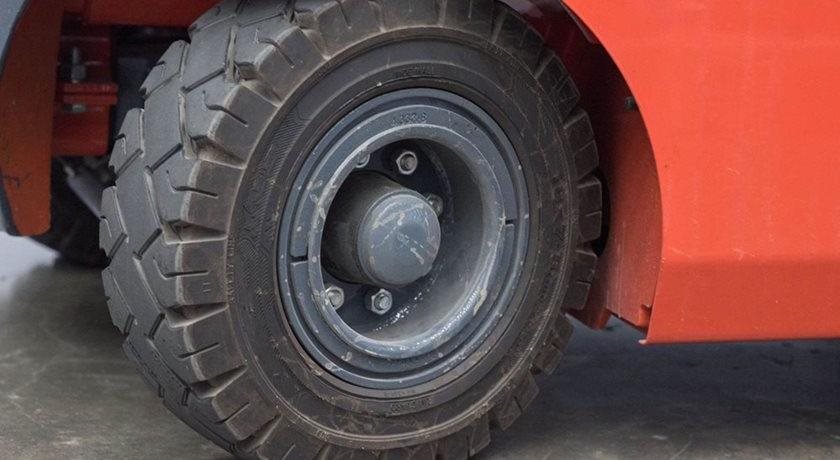
- Share
Why Do Forklift Tires Fail?
Tires are one of the most overlooked components on a forklift. They are the main source of cushioning and support for your operators and loads. Distribution and warehouse facilities typically run equipment constantly to ensure product moves quickly from point A to point B, taking a toll on tires.
Often times the tires are often forgotten about until there are major problems resulting in costly downtime. Taking a more proactive look at the way tires are used in a facility and understanding what contributes to their failure can help prevent these costly situations from occurring. Explore the various factors below.
Operator Abuse
Things like excess spinning, stopping, ramming, overloading or throwing into forward or reverse without stopping first.
Dock Plates
If improperly driven over dock plates, spiking in the plates can cause shredding of forklift tires.
Poor Bond Construction
In manufacturing, the rubber is bonded to a steel band which is the pressing component that presses to the hub.
Heat Build-Up
If too much heat occurs, primarily during long forklift runs, the rubber compound turns to a gel and blows out the sidewall of the tire.
Uneven Floors
When a warehouse or factory has uneven floors this causes uneven wear on the tires, resulting in faster wear.
Incorrect Compound for Application
If the application requires a specific compound like oil resistance, smooth or traction tread, etc., it will make a tire prematurely wear out. The correct tread type or compound is needed to have a long-wearing product.
Pneumatic Tires with Improper Pressure
When running on underinflated tires you can easily overload the pneumatic tire, running the risk of sidewall separation, blowouts, rapid tread wear and bead failures.
Non-Marking Tires Wear Faster
Non-marking tires are needed when the application requires floors to not be marked and typically in cleaner environments. However, the chemical that makes up the non-marking does not last as long as a black inked tire and will need more frequent replacement.
How to Protect Your Equipment Investment
Protect your equipment investment by reviewing this list of reasons why forklift tires fail. The impact tires have on fuel consumption, vehicle downtime, lost productivity, as well as replacement, disposal and maintenance cost all add up. In order to reduce avoidable maintenance costs in the future, have your lift truck fleet’s tires inspected today. We offer free, no-obligation tire surveys, as well as Mobile Tire Press Services, to keep you up and running.
Explore the different types of forklift tires here.

